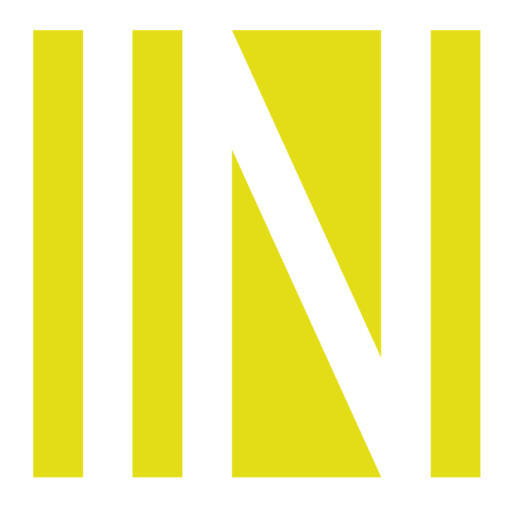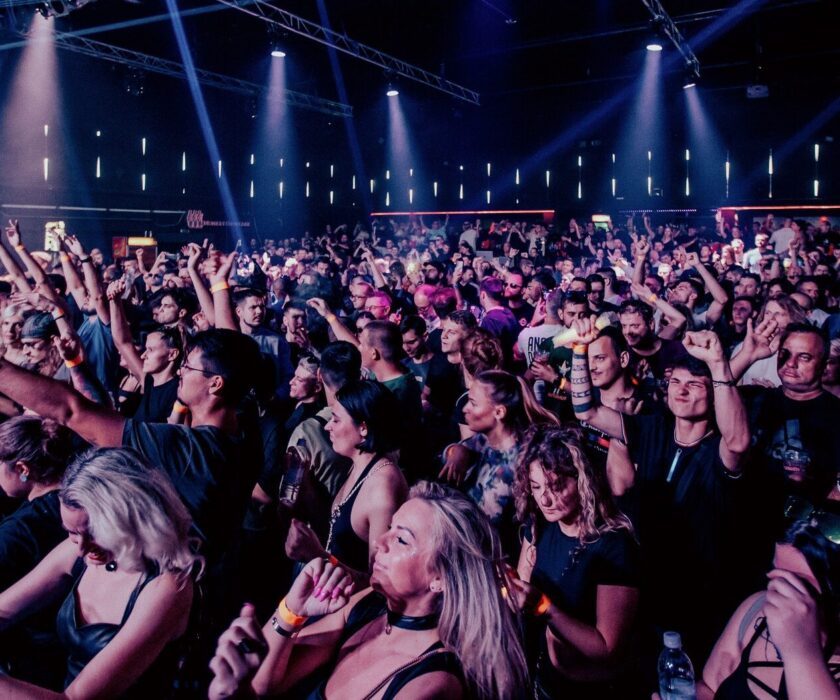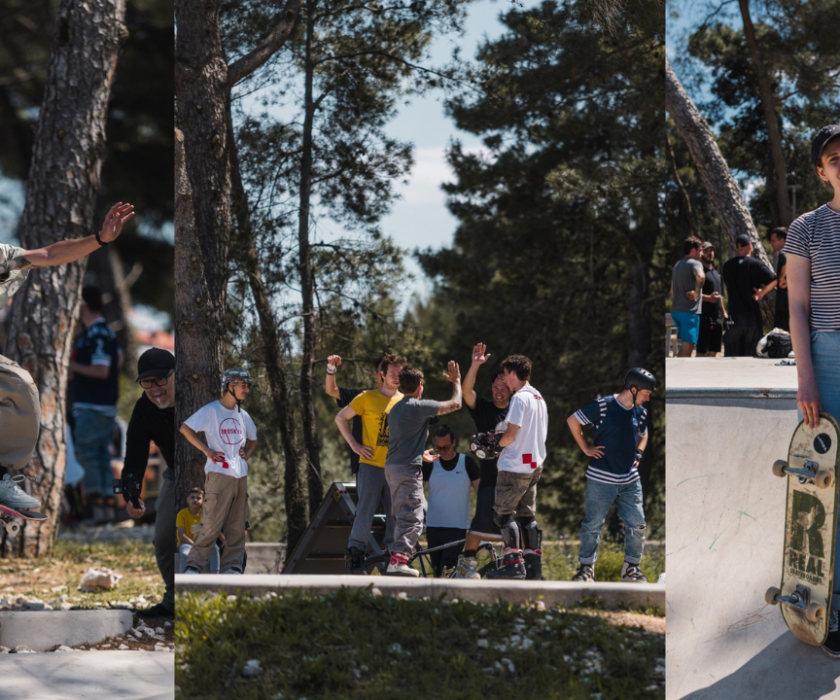Stipe Škokić, a Split native better known as DJ Jock, has held a prominent position on the Croatian techno scene for years. With a successful 15-year career behind him, he considers his biggest achievement to be signing with Intec, a label owned by Carl Cox. His stature is also reflected in numerous awards, including three Ambassador Awards for Best DJ, an Ambassador Award for Techno Release of the Year with the track Urania (Unrilis), and last year’s Elector Award for DJ of the Year, chosen by his favorite – the audience. Beyond Croatian fans, his hard work and talent are recognized internationally. For the second year in a row, one of the world’s leading DJs, Amelie Lens, featured an unreleased DJ Jock track on her radio show Exhale, this year it was the track Acid Foreplay, and last year it was Reesee The Pressure from his “Inseparable” EP.
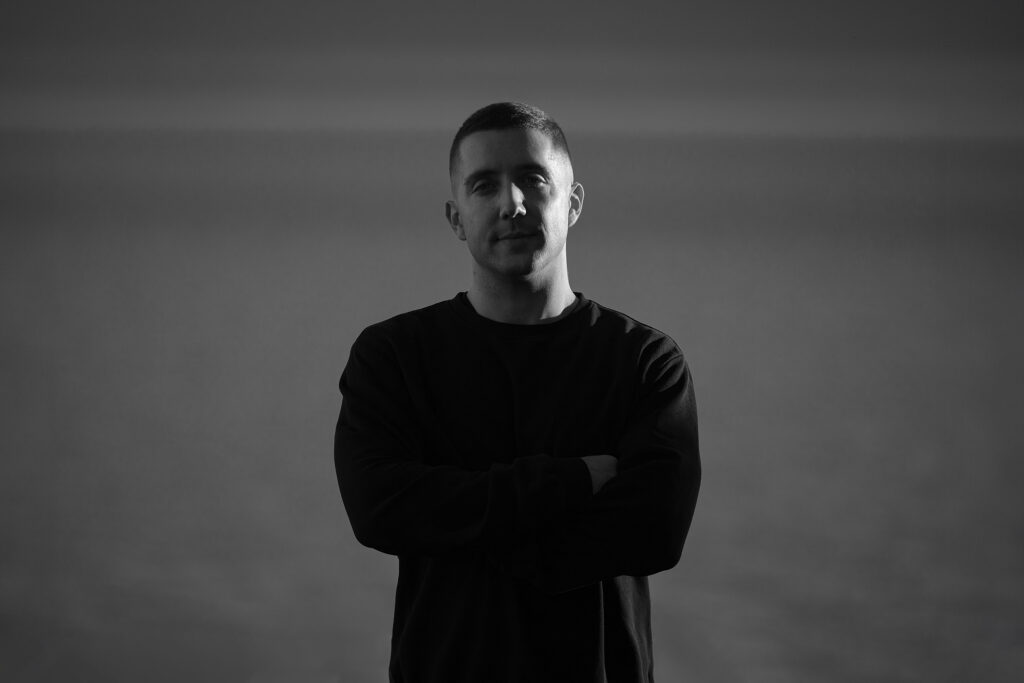
DJ Jock had a busy summer, performing at festivals along the coast, such as Ultra Europe Festival, Terminal V, FutureScope, Moondance, Stardust Festival, and Pachakutiq Festival, as well as at numerous club parties. Despite his tight schedule, he found time to speak with us, sharing his thoughts on his career so far, his views on the present and future of the local techno scene, and how his newly announced alias, JØL, under Marco Bailey’s label, came about.
Looking back on the past 15 years of your career, how do you feel about your journey, and what accomplishments make you the most proud today?
The whole journey has been absolutely amazing. From playing music in my bedroom and imagining myself performing in certain clubs and festivals, to the fact that it actually happened it still seems unreal to me today. There have been a lot of things over the years that I’m proud of, but if I had to single out one, it would be signing for Carl Cox’s label, Intec. To this day, it still feels like a dream.
How would you describe your music style, and would you say it has evolved over the past 15 years?
That’s the hardest question for me, haha. Everything depends on the situation on the floor and the time of the performance, but mostly it’s a mix of techno and progressive, with lots of melodies, fat beats, and rolling basslines. My style has evolved over the years. I’m constantly learning and discovering something new, whether it’s a matter of production or DJing. That keeps me inspired and always pushes me forward. Especially in music production, since the day I started making my own music, I’ve never been bored, and every day I go to the studio with the same enthusiasm. In the studio, I feel like a child in a room full of legos, and my imagination just keeps on flowing.
People who know your work and have attended your performances often highlight your deep connection with the audience and your ability to adapt to various vibes. You frequently emphasize that the audience is the essence of your job. After 15 years in the industry, would you say that public taste and behavior have changed, and what are your thoughts on it?
I will always say, the audience is number one. They are the ones who make the party, and they are the ones who give DJs the reason for playing. No substance in the world can evoke the feeling that a satisfied audience gives you. Audience preferences change, which is normal. The only thing I’m not happy about is that DJs who are popular on social networks, with large number of followers, are glorified without people going to their performances. It has happened many times that, personally, such DJs are nothing special to me, while for example, some unknown DJ from the lineup excites me much more. There are also so many talents out there who haven’t found their way around Instagram, and because of that, they just don’t get the attention they more than deserve. On the other hand, there are also top DJs and producers who are making some incredible music and sets and have found their way through social networks.
Five years ago, you launched your studio, Involver, and began composing music for movies, video games, and commercials. What inspired you to explore these new fields, and how has this expanded your approach to music-making? What projects are you currently working on in the studio?
I opened the studio after finishing college. It was primarily made only for my own projects, but with the arrival of COVID and the pandemic, I had to find a way to survive, and that’s how I started working on music for games and movies. To be honest, it was extremely difficult to get there because I had never done anything like this before, I had no portfolio, and no one wanted to take me on. But then I did free projects for students who had game-related works but no sound or effects. That’s how I created a portfolio, after sending about 300 emails, one company finally accepted, and that’s how it started.
During that COVID time, I couldn’t force myself to make songs for dance floors because I didn’t know when the clubs would reopen. I just had no inspiration. However, I did a lot of ambient music back then. The first project for a video game really saved me. For the first three days after starting the project, I was just banging my head against the wall, panicking that I wouldn’t be able to do it. But then everything clicked, and within a couple of months, I recorded the entire soundtrack for the game, plus additional effects and the entire soundtrack for a movie.
Since then, I always turn on some videos from space on the second screen in the studio, or if I’m working on some songs for the dance floor, I turn on someone’s festival set, mute the sound, and try to create the atmosphere myself. That’s all because I used to make music for movies and games in the same way. I would play a scene or level from the game on the second screen and just try to evoke that scene with music.
For some time now, you’ve been seen performing frequently with Shipe, with whom you seem to have a great on-stage connection. What’s the story behind this collaboration, and which other artists have you enjoyed playing alongside?
A few years ago, we were booked for a performance, and the promoter asked us if we could go back-to-back. Normally, I’m not a fan of back-to-back sets, but that first one was really good. I told him in the middle of the set that I couldn’t believe how good it was and that I could play like that all night long. Not long after that, we threw an all-night B2B, on two setups, each with our own mixer and CDJs, and from the first to the last track, we just kept building on each other. It was really great.
Over the years, we’ve performed with many famous names such as Fatboy Slim, Paul Kalbrenner, Boris Brejcha, and many others. That connected us even more, and today, Shipe is one of my closest friends and the person I talk to every day. I have followed his path as a promoter since the beginning, and I’m so proud of his achievements. He started from nothing and became one of the best in this region. He taught me a lot about event organization and pushed me to do my own events. Whenever I have a problem with the organization (and there are always a million of them), he is the first and only person I call. He always has a solution for everything because it all happens to him on a daily basis, haha.
Since 2017, you’ve been organizing club nights under the name Roots, bringing big names like Cristian Varela, Sasha Carassi, Coyu, Jon Rundell to Split, effectively revitalizing the city’s techno scene. Do you believe the electronic scene in Split has a bright future, and how has your perspective on it evolved since you first started?
I am an optimist and believe that it will get better. At the moment, the problem in Split is similar to everywhere else in the world; many clubs are closed, either because of COVID or simply because it is difficult to maintain a club with electronic music in a smaller town. Especially today, with rental prices and DJ fees, it becomes unprofitable quickly, and the clubs shut down. I personally love clubs and the club atmosphere. The first time they finally allowed me to enter a club because I was too young, and when I went inside and heard that music, saw the light show, and watched all the people dancing, smiling, and hugging each other, I thought it was heaven and wanted to stay there forever. After that, I went to every party I could afford. I heard a lot of great DJs and met some people who are like family to me today. I spent some of my best years at Aurora, Masters, Jungla, Kameleon, Judino Drvo, etc. There was a time when 400-500 people would come to listen to a resident DJ. I sincerely hope that the culture of clubbing will return and that Split will one day get a club it deserves and that won’t shut down after a few years.
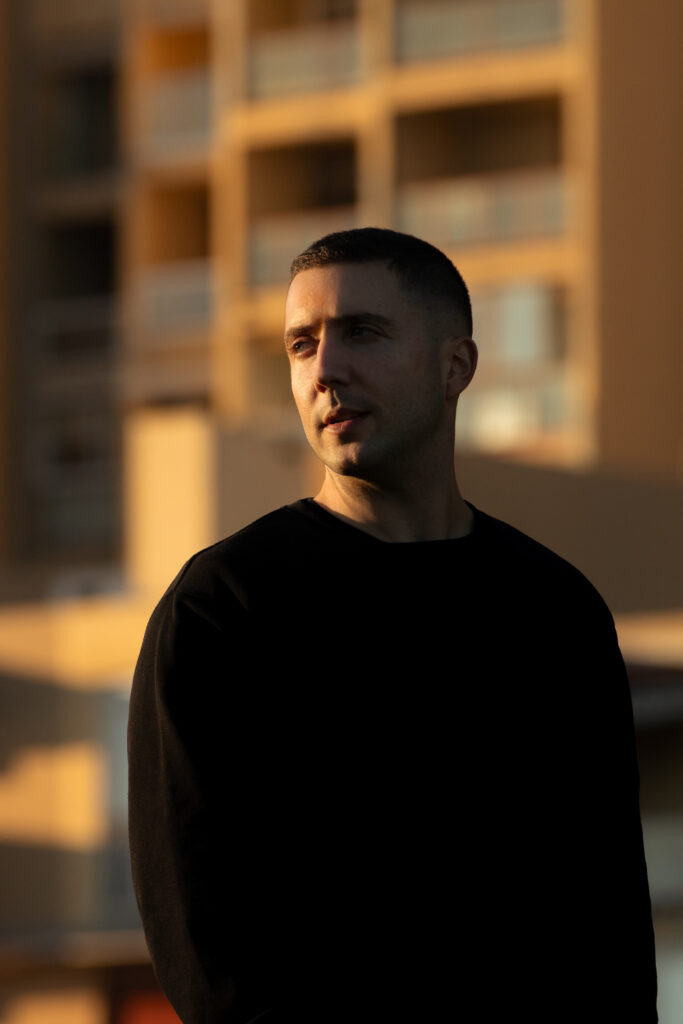
Have you ever pursued any other professions besides DJing and producing? If you weren’t doing this, what do you think you’d be doing instead?
As a child, I trained tae-kwon-do for 10 years, and I loved it. It’s interesting that right before I stopped training, I started playing music at private parties, and shortly after that at clubs, which became my life. I graduated in taxes and finance at the Faculty of Economics, but I never worked in the profession. It’s honestly hard for me to imagine a different life because, without music, I would be a totally different person. I would probably do some office work 9 to 5, but i can’t say I would be happy with it.
What do you listen to when you’re not working in the studio or on stage? What’s on your playlist when you want to clear your mind?
I constantly have to listen to music because silence makes me nervous, haha. I mostly listen to electronic music – all sorts of it. The sound of synthesizers and machines has always sounded to me like music from space and the future. Right now, I’ve had the ambient album Solarmetric from Echo Session on repeat for days. It’s a brilliant piece of music, and I would suggest everyone check it out. Also, while I sleep, I let the 432Hz frequency play all night on low volume. I also often listen to Ideas Of The Pound by Petar Dundov, which is certainly in my top 5 electronic music albums ever. I listen a lot to progressive house sets from the early 2000s, such as those by Sasha, John Digweed, and Satoshi Tomiie.
You recently announced your new alias, JØL, under Marco Bailey’s label, Materia. Could you tell us a bit more about how this came about, what we can expect from this project, and what distinguishes JØL from Jock?
As I create music every day, I have accumulated a lot of material. I actually have two more aliases, but I just released JØL for now. A few years ago, Pero Fullhouse booked me for Moondance Festival and asked if I could perform live. I had never done a live set with machines, so I didn’t want to do it at first, but I like challenges and started working on some ideas. Since Moondance is a festival focused on the underground side of techno, I practiced live with just one drum machine, one mono synth, and one hybrid synth. I was surprised by how many ideas came out of me. People reacted quite well to the live show that night, and when I got home right after the performance, I saved a couple of ideas I had created on the spot. I sent a few tracks to DJs like Cristian Varela, who was delighted and encouraged me to continue working on that alias. After that, I sent a few songs to Marco Bailey, who liked them a lot and signed them. When he performed in Zagreb, we talked, and I told him I wasn’t sure about JØL and the tracks. He told me not to be crazy, said he thought it was great, and gave me great encouragement to continue. I am so grateful to Marco for that, it really resonates on a different level when you hear such words from your idol from the beginning. Another EP with two tracks and a remix was signed to a great techno label.
JØL is a completely different side from Jock. When I make music as JØL, I try to do everything on the machines in a semi-live performance and record it raw as it is. It is much darker and more underground. I really enjoy working this way, and the limitation of working with only a couple of machines and recording raw gives a special flow and completely different results.
What are your predictions for the future of the Croatian techno music scene, and what advice would you give to those trying to find their place in it?
I think we have many talented producers, DJs, and promoters. We also have great clubs and events, but I would like that number to be even higher. I tell everyone the same: do as much as much as you can on your own. Don’t rely on anyone else, take matters into your own hands. Practice mixing, produce your own music, organize your own events, and put effort into social media. If no one wants to release your music but you believe in it, open your own label and release it yourself. Don’t wait for an opportunity, create it yourself and then use it. Always be ready, professional, and humble. Learn as much as you can and improve little by little. Today, there are so many DJs and so much competition that it is very difficult to stand out. But be patient and take one step at a time. I know it’s hard, it’s hard for me too and these are some strange times with music having taken a backseat. But I believe that all trends will pass, and music remains forever. Be there for the music, and it will all come back to you.
From DJ Jock, there’s no doubt you’ll be hearing a lot more, and his next performance will take place at Aurora Club in Primošten on Friday, September 13th, at 8 P.M. In this legendary club, he will close out the summer season with an all-night-long set. Get your tickets at Entrio.
